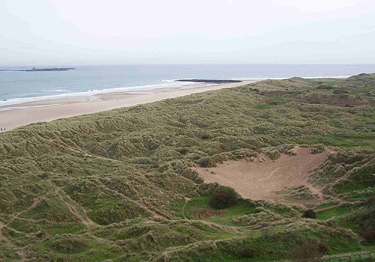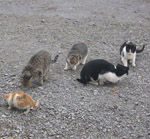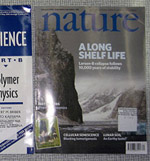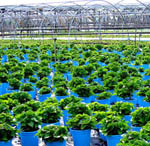Livestock grazing helps coastal sand dunes
 Agriculture,
Agriculture,  Coastal,
Coastal,  Plants
Plants  Bamburgh Dunes, Northumberland, England. Image credit, Mick Knapton.Coastal sand dunes are in big trouble. Historically, winds have moved sand dunes around leading to a community of plants and animals specifically adapted to this continuously shifting ecosystem. But over the centuries, a variety of human impacts have essentially locked many coastal sand dunes in place. This has allowed tall, dense, vegetation to take over and transform the ecology of these places.
Bamburgh Dunes, Northumberland, England. Image credit, Mick Knapton.Coastal sand dunes are in big trouble. Historically, winds have moved sand dunes around leading to a community of plants and animals specifically adapted to this continuously shifting ecosystem. But over the centuries, a variety of human impacts have essentially locked many coastal sand dunes in place. This has allowed tall, dense, vegetation to take over and transform the ecology of these places.
New research has found that livestock grazing can help improve the sand dune ecosystem. The study looked at whether grazing management over a 16-year period in a protected dune system in North Wales, UK, had counteracted tall-grass dominance and a loss of species diversity.
The authors hypothesized that livestock grazing would:
1) Change the composition of plant communities;
2) Increase species diversity and evenness;
3) Benefit bryophytes, small and short-lived plant species
4) Help meet conservation management objectives by leading to the increased frequency of plant species typical of sand dunes.
In 1987, winter grazing of cattle, sheep and ponies was introduced to the area. At that time, scientists also set up 38 permanently marked vegetation quadrats. This has given the study authors a unique opportunity to look at changes over a long time scale.
Study Findings
The study found that after introduction of grazing, species richness (i.e. total number of species) increased substantially. In addition, species associate with sand dunes saw an increase in abundance. The researchers state that these increases are likely due to the fact that grazing removes biomass, opens up of the canopy and reduces fast-growing competitive species while allowing more light to reach the surface layer. They write:
"Small, poorly competitive species, annual and biennial species and bryophytes would all benefit from [this]. Increased seed dispersal by the large herbivores can also contribute to increased species numbers, while soil disturbances caused by grazers may stimulate germination from the soil seed bank, which was shown to be diverse and contain species of conservation interest at the study site"
The study found that grazing had less of an effect on species diversity in dune slacks (i.e. depressions in sand dune systems), where other environmental variables, especially soil moisture, appear to be more important determinants of species composition.
--Reviewed by Rob Goldstein
| Source: | Applied Vegetation Science |
| Title: | Effects of long-term grazing management on sand dune vegetation of high conservation interest |
| Authors: | Katharina Plassmann, Laurence Jones, and Gareth Edwards-Jones |
|
a) Bangor University, Bangor, UK |




Reader Comments